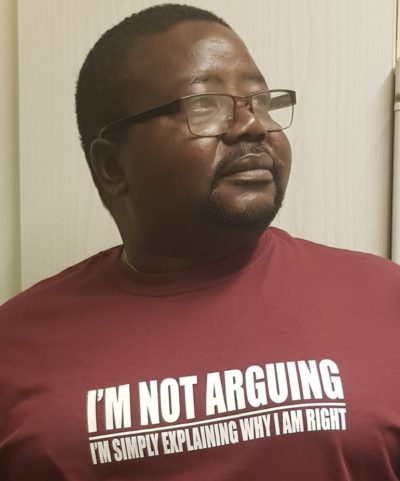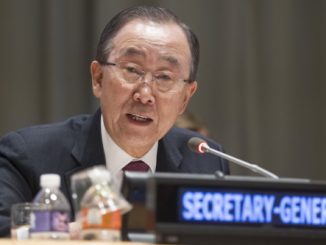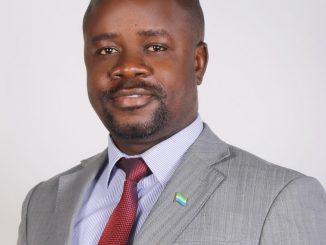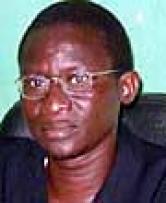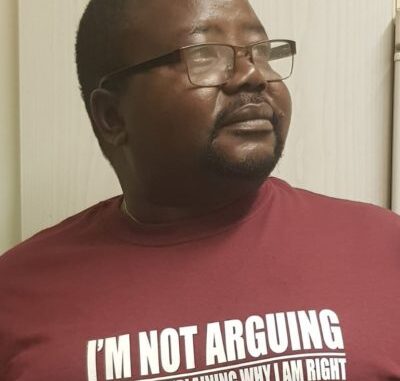
By Abdulai Mansaray
It might have started long before Patrice Lumumba of the then Congo was betrayed and killed by the Belgians. Since then, the political history of Africa is known as the continent drenched in the blood of revolutionary heroes. The continent has seen many African independence leaders assassinated by their ex-colonial masters or their agents since the of the hue and cry for political independence started. The death or overthrow of leaders with certain philosophies or ideologies has been evident on a regular basis.
A 1975-76 US Senate Church Committee’s investigation revealed in declassified records, the CIA’s mission to assassinate Patrice Lumumba. The records contain extensive CIA operational documents on the order given to control the government and try to stop the communist influence from the 1960s. The operation incurred $12 million ($80million-current value). New evidence has shown that a February 14, 1972, memorandum found at the National Security Archive at George Washington University, by a writer states he was “directed by Mr Richard Bissell to assume responsibility for a project involving the assassination of Patrice Lumumba by poisoning him”.
With Patrice Lumumba assassinated, Kwame Nkrumah became the leader of the first sub-Saharan African country to gain independence from European colonisation. Like other freedom fighters, he shared a Pan Africanist ideology to campaign for the political unity of Black Africa. His focus on the unity of the larger African continent came at the expense of Ghana’s national interests. He was later ousted in a western backed coup in 1966.
Steve Biko was a South African anti-apartheid activist, whose African nationalist and African socialists’ ideologies help formed the bedrock of the “Black Consciousness movement” during the late 1960s and 1970s. This movement focused on the “psychological empowerment of black people”. Steve Biko was beaten to death by security officers in 1977 for standing up for the liberation of black people, in their own country. Pan Africanism.
Thomas Sankara changed Upper Volta to Burkina Faso (meaning land of incorruptible people/land of honest men) and embarked on an ambitious socioeconomic plan, one the largest of its kind in Africa. Sankara’s foreign policies primarily centred on “anti-imperialism”, and like Steve Biko laced with the empowerment of back people. His government rejected all foreign aid, pushed for odious debt reduction and he nationalised all land and mineral wealth to mitigate against the power and influence of the World bank and the IMF. By the time Sankara was killed on 15 October 1987, Jean Ziegler, a former UN special rapporteur for the right to food, said that the country “had become food self-sufficient.”.
Amilcar Cabral, the leader of Partido Africano da Independência da Guiné e Cabo Verde or PAIGC was assassinated in 1973. Felix Moumie, the opposition leader in Cameroon was poisoned in 1960. While the leader of Togo, Sylvanus Olympio was killed in 1963, Mehdi Ben Barka, a leader of the Moroccan opposition was kidnapped in France in 1965. His body has never been recovered. Eduardo Mondlane, Mozambique’s Frelimo leader fighting for independence died from a parcel bomb in 1969. The list goes on. These leaders shared political DNAs with political ideologies and projects based on national dignity, black empowerment, and black consciousness. They encapsulated the spirit of Pan Africanism.
Many have questioned the position of ECOWAS and especially in relation to its expired ultimatum to intervene militarily in Niger. Technically, ECOWAS and Nigerian President Bola Ahmed Tinubu has ordered regime change in Niger. Many see this as a reminder of ECOWAS’s paymaster world order. Like America, does ECOWAS expect to be greeted by the people of Niger with roses and flowers, in the event of a military operation? Interestingly, domestic, and foreign responses show that a military intervention in Niger has been a hard sell. It is no wonder that the deadline has come and gone, thankfully without a single shot fired. It is interesting to note that at the time of writing, only the Russian backed Wagner Group has sent congratulatory messages to General Abdourahmane Tchiani and his men. Although the initial response from the Nigerien population was one of opposition to the coup, the atmosphere has suddenly changed to massive support, since the threat of military intervention was issued. The threat of military intervention by ECOWAS has unintentionally created a siege mentality among the Niger public, and ironically transformed an unpopular coup to one of national awareness.
Many have condemned the ultimatum and the deadline given as too short and impractical to facilitate a return to barracks or to civilian rule. There is a significant sense of caution wafting within and outside the political corridors of ECOWAS and other neighbouring states. While Tchiani and his band of brothers have closed Niger’s airspace, Mali and Burkina Faso, brothers in arms and who have both been suspended from ECOWAS have sent a delegation to Niamey, to show support and said that military intervention would be tantamount to a declaration of war.
The Italian Foreign Minister Antonio Tajani told La Stampa newspaper. “A solution must be found. It’s not set that there is no way other than war”. Germany has shared the same warning. The Algerian president, Abdelmadjid Tebboune, whose country shares a long land border with Niger, has cautioned against military solution and said that it would be a “direct threat” to his country. In the meantime, France with whom Niger has broken diplomatic ties vowed to “back whatever course of action ECOWAS took”. It will be an understatement to say that long held anti French sentiments are now boiling over. Even those against the coup initially hold France responsible for the coup in the first place.
However, with the increasing number of support and opposition from domestic, neighbouring, and international factions, and with an ever-increasing presence of shareholders, it’s beginning to look like the military intervention would have to be shelved……for now.
In the meantime, Nigerian President Bola Ahmed Tinubu ordered the Transmission Company of Nigeria (TCN) which supplies 70% of Niger’s to cut power supply. Lest we forget, Niger shares borderlines with seven northern states in Nigeria, and shares common DNA in ethnic, cultural, and economic ties. It is difficult to see how these Nigerian states will not be affected by any military intervention. Interestingly, Niger was part of Nigeria before the same western powers dissected it during the round table conference in the 1884 Berlin Conference. Cue the irony, that Niger’s attempt to kick against western imperialism is paradoxically causing some angst with Tinubu. Phew.
Niger is 98% Muslim and talk about the religious solidarity that could emerge and transform any politically motivated intervention into a proper jihad. With Boko Haram loitering with intent in the region, is there a risk that a military intervention in Niger could generate a religious solidarity, which could make Boko Haram (B.H) shareholders in the ensuing conflict? Will B.H take advantage of the security situation and “cash in”? As if they need an excuse. With American and French bases on the ground, supposedly to help fight against militant Islamists, B.H and with other militant extremists in the region, it is difficult to see how both countries would not be drawn into a major regional war that could arise from Tinubu’s threatened intervention? Talking about B.H presence in Nigeria, Tinubu’s critics would wonder as to why he wants to remove the speck of dust in his neighbour’s eye, while he has a plank lodged in his.
Equally, Tinubu will need to get approval from both chambers of the National Assembly, without which the President cannot deploy Nigerian troops on foreign soil. Recently, a Nigerian Tink Tank Office for Strategic Preparedness and Resilience stated that “a military intervention aimed at regime change in Niger would be costly and infeasible”, and that “it would lead to counterproductive consequences for West Africa”. With growing opposition from both domestic and international sectors, will Tinubu get the approval he needs from both chambers of the National Assembly?
However, there are those who would sympathise with President Tinubu’s aversion for the coup in Niger. He was elected to the Lagos West Senate seat in 1992 when Sani Abacha seized power. He fled into exile in 1994 and only returned to Nigeria after Abacha’s death in 1998. Many people wonder if Tinubu is trying to beat Tchiani with Abacha’s whip, or is he about to make his first diplomatic faux pas, after boxing himself into a political cul-de- sac? West Africa has seen its 6th coup since 2020 and many wonder why the usual table talk was not proposed as usually the first option. Is this part of the global politicking or orders from colonial masters; the very angst for the spate of coups in the first place? As chairman of ECOWAS, does Tinubu shoot from the hip? Time will tell.
Anything to see here?
What is happening in the Sahel is not unique. Is there a sense of a Third World Movement, to challenge the economic and political hegemony and world dominance of the West and its favoured neo-colonial leaders? BRICS is an acronym for the powerful grouping of the world’s emerging market economies, namely Brazil, Russia, India, China, and South Africa. Its mechanism aims to promote peace, security, development, and cooperation. Is there a simmering Third World Movement beginning to stand up to the self-anointed God’s deputies on earth?
What many are finding out is that “democracy” is only called “democracy” if it fits with western values, protects, and promotes western interests. African leaders are only democratic if those interests are secured. Have western interests become the yardsticks for democracy in Africa? Is it any wonder that even though his election is littered with controversies, the West is ready to spearhead Tinubu as the High Priest of democracy in the region? What an irony, from a man whose election as president is open to question. So, what do you expect when you have Shell Energy Nigeria, Addax petroleum, TotalEnergies, ExxonMobil, BP and many others still wallowing in the oil fields in Nigeria.
In just four months after the exhilaration of Independence Day in the capital Kinshasa, Patrice Lumumba wrote this to his wife:
“Dead, living, free, or in prison on the orders of the colonialists, it is not I who counts. It is the Congo; it is our people for whom independence has been transformed into a cage where we are regarded from the outside….History will one day have its say, but it will not be the history that Brussels, Paris, Washington, or the United nations will teach, but that which they will teach in the countries emancipated from colonialism and its puppets…a history of glory and dignity”.
Has Africa ever been free? Why do our black heroes die so soon?
Don’t forget to close the door when you leave the room.
Abdulai Mansaray.

